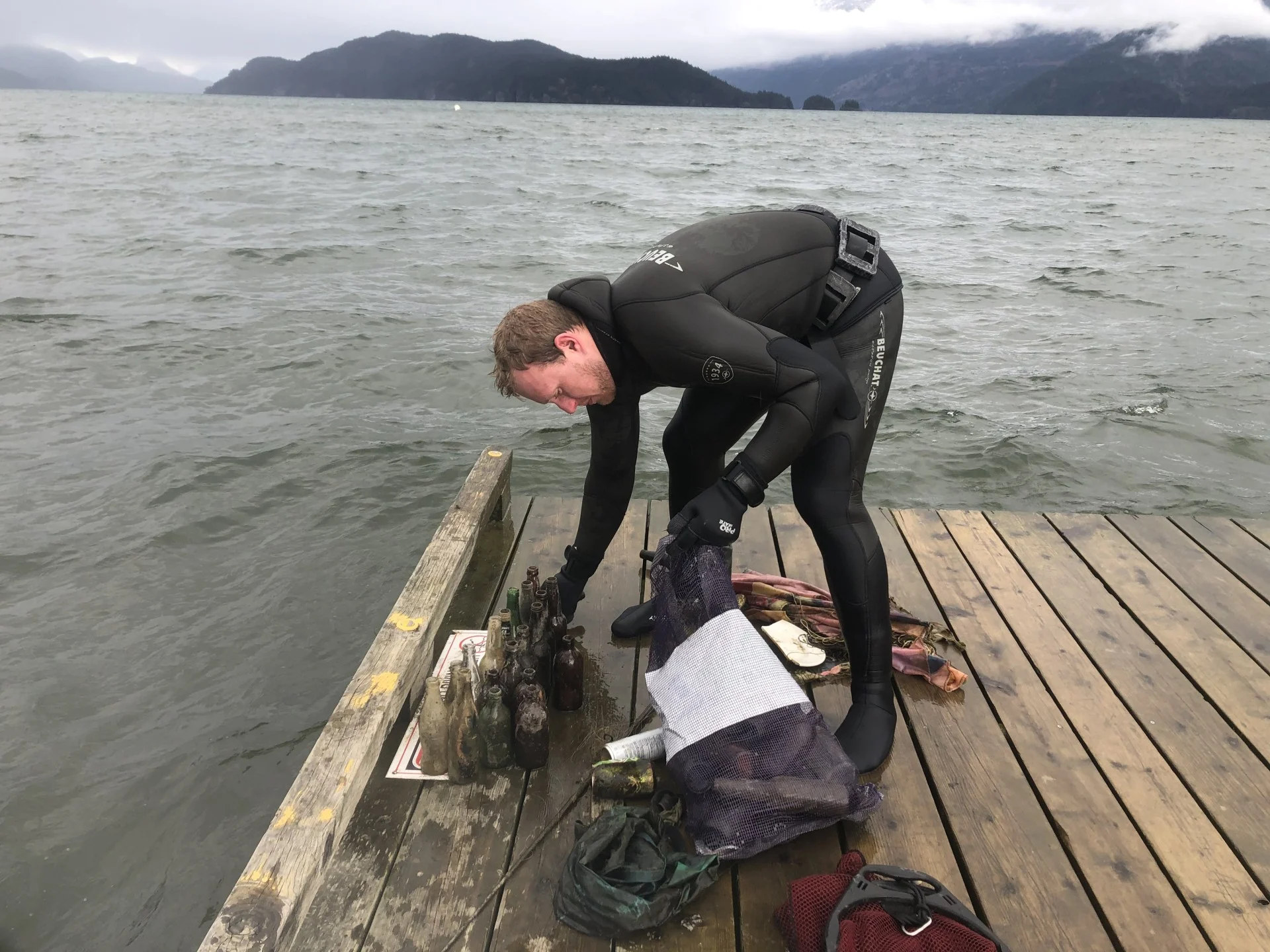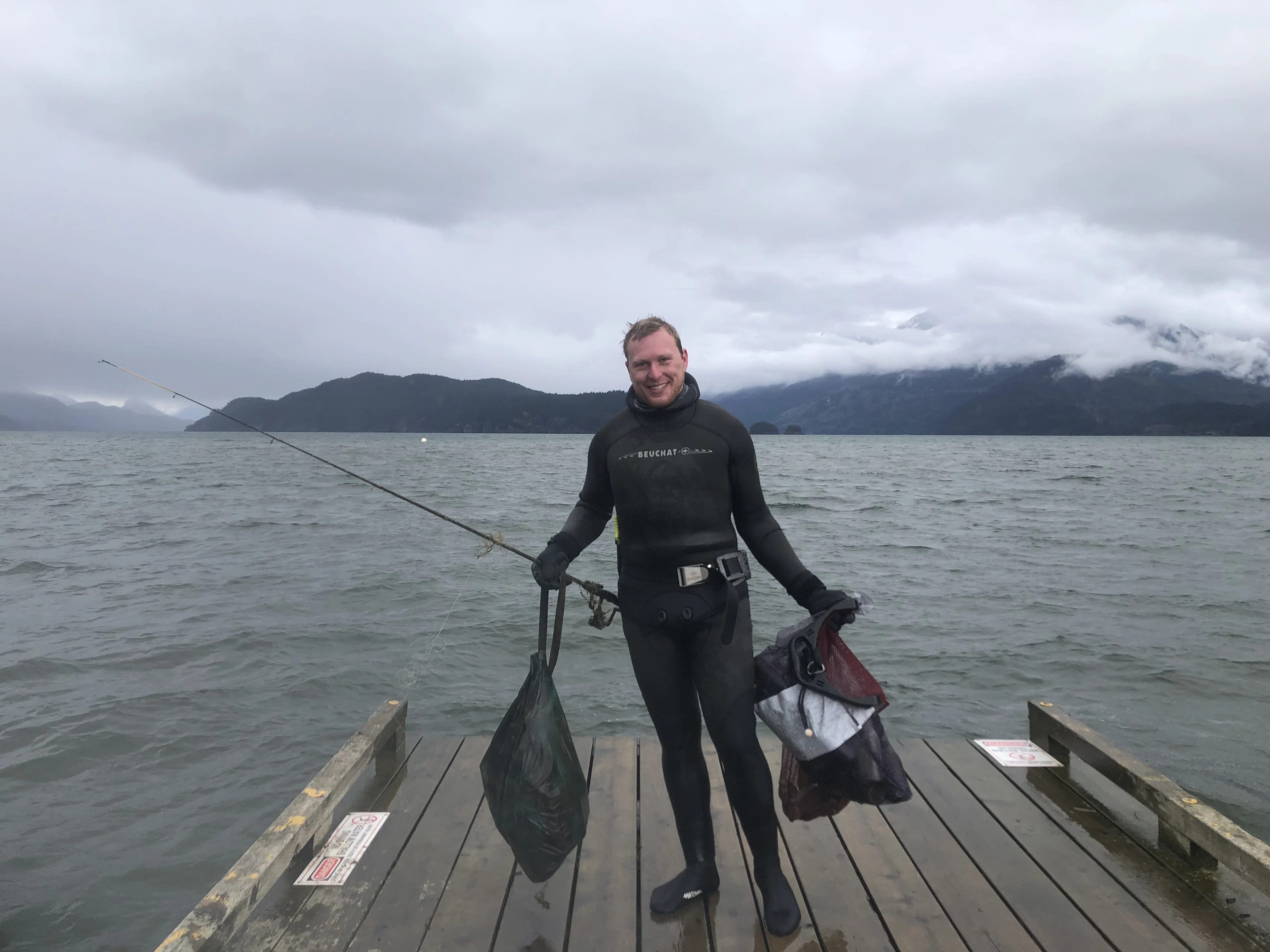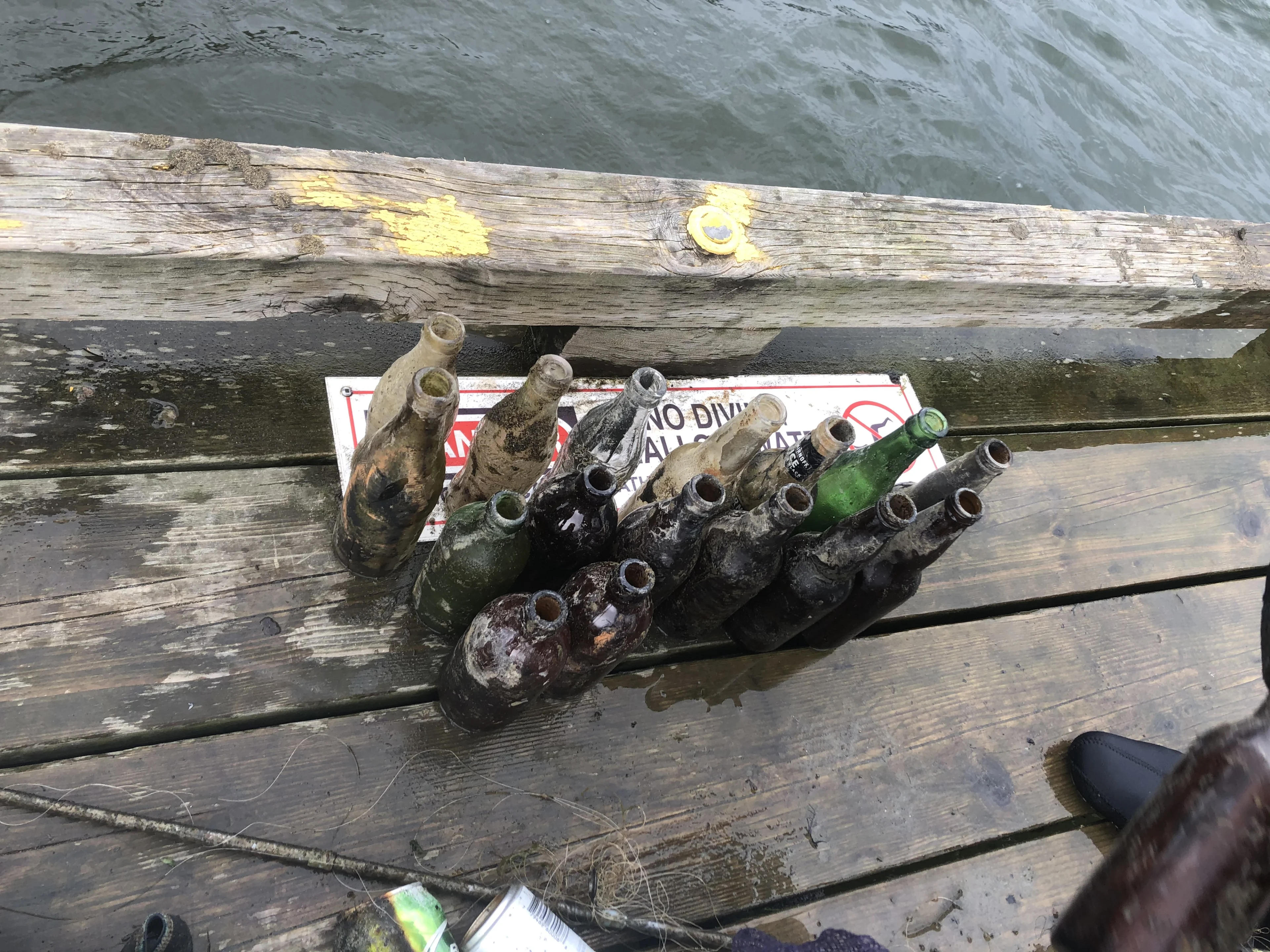
Diver removes tires, iPhones, and over 1,000 lbs of trash from B.C. lake
Aquatic species are becoming tangled and trapped inside the garbage that is discarded at Harrison Lake by thousands of visitors each year.
Every year, about 700,000 tourists visit the quaint village of Harrison Hot Springs, B.C. to enjoy the sandy beaches of Harrison Lake. The lake is 250 square kilometers, which makes it the largest lake in the southern Coast Mountains and offers endless activities. While the visitors take home wonderful memories, they unfortunately leave behind plenty of trash.
Clayton Helkenberg grew up in Harrison Hot Springs and always loved swimming in the lake. In more recent years he started free diving in the waters near his home, and it was during these descents he started to notice just how much trash was collecting at the bottom of the lake.
“The more we swam, the more trash we would find and it evolved to more dedicated trash clean ups,” Helkenberg says.

Helkenberg hopes that his dives and findings shine a light on the growing pollution problem. Credit: Clayton Helkenberg
Glass bottles account for most of the garbage they find, but they have also retrieved cell phones, sunglasses, and car tires. On some of the dives, Helkenberg says they have collected more than 450 kg (1,000 lbs) of trash. In addition to the staggering volume of trash that Helkenberg extracts from the lake, a Louis Vuitton wallet and sunken boats have also been discovered.
Helkenberg wanted to share his journey of removing garbage from the lakes in the Fraser Valley, so he started a Youtube page called Aquatic Monkey. He hopes that posting videos of the garbage found during his dives will help viewers realize that just because you can’t see the trash, it doesn’t mean it’s not there.

Beer bottles are some of the most common items that are discarded in the lake. Credit: Clayton Helkenberg
“I hope people have a little more understanding that if they throw a can or a bottle in the water, it doesn’t just go away. It can be there for hundreds of years. They need to understand that this impacts the environment,” he stresses.
Helkenberg too often sees the harmful impacts from pollution first hand. On a few of his dives he has found crayfish trapped in fishing wires and has had to cut them loose. Another time he retrieved a gas tank and found several crayfish trapped inside when he opened it. Helkenberg started a Patreon page for anyone that might want to help him in his mission to help keep local B.C. lakes clean.
Thumbnail credit: Clayton Helkenberg












